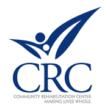
Children Therapy
In today’s highly connected, high-stress world – children are exposed to situations, information and scenarios that no gerneration before them has faced. These conditions, broken households and income often lead to long term damage for fatigue to children’s mental health and increased anxiety.
CRC’s Youth Services Programs offer comprehensive, tailored and custom mental health treatment services and counseling to help these children recover and live their best lives. While many of the symptoms associated with anxiety disorders are both obvious and predictable, others have a tendency to go overlooked. By speaking to a registered and experienced psychiatrist can assist in identifying symptoms and planning a road to recovery.
- Generalized Anxiety Disorder – Feelings of worry and fear that manifest without any real trigger and can be overwhelming, often going on many hours of the day. There may be worrying thoughts, physical symptoms of worry such as a fast heart beat or breathing, sweating, stomach butterflies, a knot in one’s chest or just feeling muscular tension and on edge.
- Obsessive-Compulsive Disorder (OCD) – Repetitive and distressing behaviors or thoughts are the key indicators of OCD. These thoughts or behaviors can be about hygiene, security, cleanliness, orderliness or just about anything.
- Panic Disorder – Panic attacks that come out of nowhere and have no real explanation, or indeed may occur in specific contexts. A panic attack can involve a rapid heartbeat, shallow fast breathing and often a deep sense of dread.
- Post-Traumatic Stress Disorder (PTSD) – When an individual suffers from chronic anxiety in the wake of a traumatic or distressing event/period in life. The individual may experience unwanted flashbacks about the event, wake with nightmares, avoid situations that remind them of the trauma and be generally hyper vigilant, always on edge.
- Phobias – these generally an irrational fear of something that is relatively harmless.
